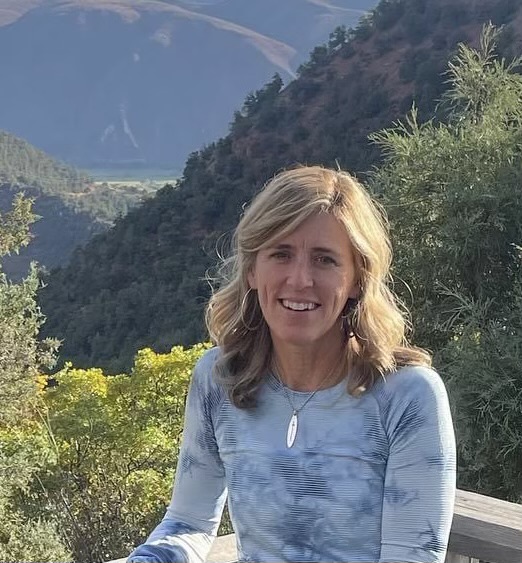Could we become more compassionate, loving, grounded humans when we discover what makes us bloom? I can’t think of anything we need more of in 2024. Kevin Miguel Garcia invites us to experience our divine self in their refreshingly honest book, What Makes You Bloom.
This is my first encounter with Kevin, but it is clear they have been at this for a while. With a master’s degree in practical theology from Columbia Theological Seminary, they work as a spiritual recovery coach, mystic theologian, speaker, and podcaster. Their tech-savvy approach provides spiritual wanderers a practical, accessible path to healing and wholeness–especially those who discovered they were the exception to their faith community’s “All Are Welcome” message.
Kevin begins with an invitation to what they call a “spiritual refugee camp outside the empire’s walls”(p.3). They share their story of rejection and exile from their faith community and job after coming out as a Queer Christian. While they do not downplay the heartache, they do not stay there. The focus and message resounding through the pages is healing is possible, peace is accessible, and love and joy are present. They assure each of us we have daily access to what makes us bloom by “creating a living practice” (p.16).
As we begin to explore their recommended practices, Kevin calls us to “get spiritually naked”(p.19). Their provocative playfulness with language creates boundless space for exploration. Kevin writes with a tender awareness of the trauma of rejection while simultaneously creating a therapeutic playground for the spiritually curious.
Each chapter is filled with story, reflection, and simple practices like: “mantras for grief and all the other stuff you don’t want to feel,” “things to think about,” and “things to try,” like “create a grief altar, attend a sound bath, meditate for one minute on the hour”. While “mantra” may not be a word we hear often in the Christian tradition, it is simply a word or phrase we choose to meditate on, something sacred to us.
As we consider new spiritual practices, they encourage us to “stop asking whether or not beliefs are true. Ask if they are helpful–a good theology is only as good as it is helpful, and the best kind of theology is practical” (p.14). While this seems a simple practice, it is profound in its impact.
Looking back on my faith journey, I easily got stuck in the “Is it true?” space. Often, what I continue to hear in conversations with Christian friends is, “But the Bible says…” to justify a belief that hurts more than it helps. What if, instead, we asked, “Is it life-giving? Is it healing? Is it kind? Is it loving? Is it gentle? Is it dignifying?”
In the chapter “Feel Your Way Back, on Practice, Rhythm and Self Control”, Kevin shares a story about going to Promise Keepers at age ten. They learned early to mistrust the physical body and its urges and to learn self-control and discipline. They discovered the long list of don’ts related to sex, alcohol, cussing, porn, smoking…as if those were the keys to the kingdom. Kevin reflects later in the book:
In Western culture, we learn that our abstinence from specific actions makes us holy, not the actions we take. And thus, we become the person who prays, thanking God that we aren’t like those sinners out there. It creates a narcissism that parades itself as humility (p.177).
I wish this did not feel so true to the faith I inherited. Growing up, we had plenty of purity lines drawn for us around appropriate and inappropriate behaviors, creating fear and a sense of being unsafe in our skin. What would it look like if we focused more on the belovedness, the inherent worthiness of our bodies, instead of the sinful nature? Kevin reminds us, in the words of Mary Oliver, “to let the soft animal of our bodies love what it loves”.
Throughout the book, Kevin focuses on self-care practices. “If you want to heal the world, you must first heal yourself” (p.96). I find this same theme reiterated often in mental health and healing. Laura McKown says this: “It is not your fault, but it is your responsibility”. It is both a life-giving and empowering stance. Kevin explains that part of this healing involves getting “radically honest” about our needs–they are “deliciously human”–they make us “collaborators with the rest of creation” (p.107). What a beautiful, invitational approach to the work of healing.
As I finished Kevin’s book, I wondered what the Church could look like with more voices like theirs. I wonder if my son and his friends would have felt more connected and would have felt a sense of belonging in a faith community like Kevin envisions. And I wonder what kind of healing could happen if we paused to listen to the stories being told by the ones we least understand. We just might discover what makes us bloom.

